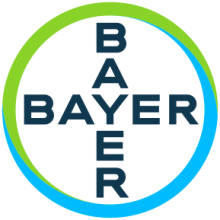The lowdown on acne
Posted on: January 04, 2022
Introduction
If you suffer from acne and feel as if no-one understands what you are going through, take heart in knowing you are not alone! In fact, as you read this, people around the world are struggling with the condition,1,2 shying away from living life the way they want to.1
It doesn’t need to be this way, though. Doctors can successfully treat acne to suit your lifestyle.2
Although acne is not life-threatening,3, 4 it can be painful.3 It can also cause scarring3 – and scars can be more than physical. People with acne may feel self-conscious, anxious, upset, or stressed about the state of their skin.1, 2, 4 You may hold back on doing things you want to, such as going out, getting active, meeting people, or any activity that involves being seen. You may even change the way you dress or the way you wear your hair to hide breakouts or scars.
But you don’t need to live life this way. Understanding acne and its treatment options will help guide your conversation with your doctor so he/she can best treat and manage your breakouts.
What is hormonal acne?
Simply put, all acne is hormonal and is caused by variations in the levels of hormones that our bodies produce.2
Hormones are important but sometimes they behave badly, like the rowdy kid in class or the disruptive co-worker!
Our bodies need a form of oil called sebum to keep our skin fresh and healthy.2 Acne occurs when male hormones called androgens (yes, females need male hormones too!) instruct our bodies to produce more sebum. This extra dose of sebum can clog hair follicles, leading to acne.2
Who does acne affect?
If you think acne only affects teenagers, think again! It can affect anyone and can develop at any time of your life.
While the condition mostly affects young adults and adolescent boys and girls who are going through puberty,1,4 doctors are now seeing an increasing number of older adult patients1, 4 and research shows that the condition is more common among women than men.1f
What should you do if you have acne?
Make an appointment to see your doctor if you have any concerns about your skin, especially if you feel the following applies to you:
- Your acne flares up around the time of your period.2
- You have breakouts in your T-zone (forehead, nose and chin) and along your jawline.2
- You have painful, large, swollen bumps under your skin.2
How is acne treated?
There is no one-size-fits-all solution but there are treatment options for all types of acne.2 Doctors can tailor treatment depending on whether you have mild, moderate or severe acne, and they also consider your lifestyle. So, remember to have a good, honest heart-to-heart with your doctor.
Treatment options can include antibiotics or other medications, topical creams and gels.3 Women who want to hold off on starting a family may be treated with combined oral contraceptives (COCs). COCs serve a dual role: they keep the hormones that can cause acne in check3 and help prevent pregnancies. Research points to the successful use of COCs in reducing acne.4
Your doctor may even talk to you about changes to your daily habits including possible tweaks to your diet,4 how to keep your skin and hair clean, what to look out for when shopping for makeup, and the importance of not touching your face or “popping” pimples.3
Conclusion
The truth is acne can make us feel self-conscious, anxious, embarrassed, dejected, and even angry and resentful. It can be downright overwhelming! But you don’t have to live with it. The state of your skin should not prevent you from enjoying life to the fullest. This is where your doctor steps in. As your personal champion, your doctor will find the solution that is best for your skin. But it all starts with a sincere, heartfelt conversation. So, go ahead and make an appointment to see your doctor today
References
1. Skroza N, Tolino E, Mambrin A, et al. Adult Acne Versus Adolescent Acne: A Retrospective Study of 1,167 Patients. J Clin Aesthet Dermatol 2018;11(1):21-25.
2. What is Hormonal Acne? Causes, Symptoms, Treatments, and Prevention. Updated 3/9/2021. Available from: https://www.forhers.com/blog/what-is-hormonal-acne-causes-symptoms-and-treatments [Accessed 24 November 2021].
3. Burke D, Cobb C. What causes acne? Updated 1/7/2020. Available from: https://www.healthline.com/health/skin/acne [Accessed 24 November 2021].
4. Zaenglein AL, Pathy AL, Schlosser BJ, et al. Guidelines of care for the management of acne vulgaris. J Am Acad Dermatol http://dx.doi.org/10.1016/j.jaad.2015.12.037.





















